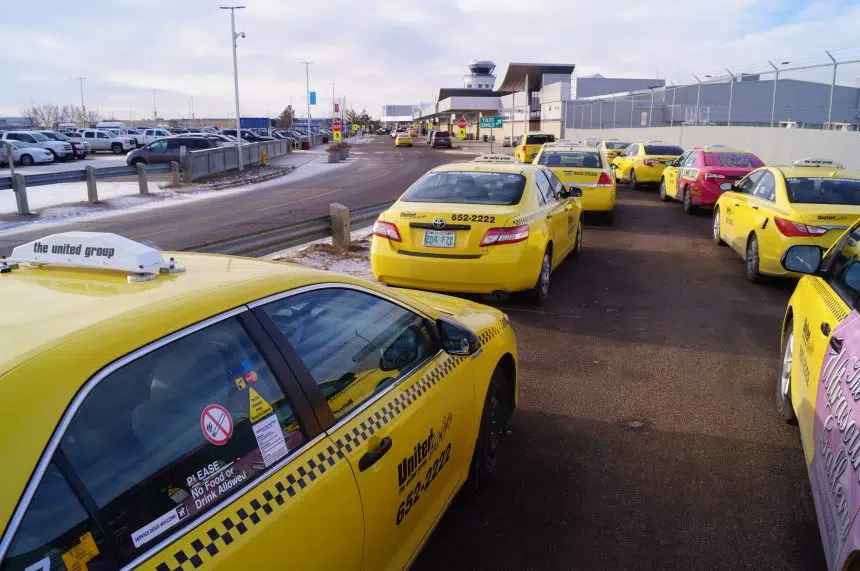Saskatoon’s taxi industry filed a class action lawsuit against the city to continue its resistance of ridesharing companies operating there.
Filed Wednesday, the lawsuit alleges that The Transportation Network Company (TNC) bylaw unfairly favours companies, like Uber, when it comes to small vehicle transportation in Saskatoon.
The new bylaw drafted last year, which allowed for the introduction of ridesharing companies, does not cap the number of vehicles on the city’s roads, while also charging a fee for each trip.
“The class action claims that the per trip fee is an unconstitutional tax that enriched the city at the expense of taxi owners, who have long complied with the city’s costly and burdensome regulatory requirements in exchange for the ability to operate a taxi,” a media release announcing the lawsuit read.
Scott Suppes, the representing plaintiff for the lawsuit, said years of lobbying, negotiating and meeting with city officials yielded no results.
“The city really didn’t pay a lot of attention to the people who have invested in the business,” Suppes said. “We lobbied and tried to get them to see our side of things, and they mostly ignored that.”
Known as a disrupter, ridesharing companies, like Uber, have long been known to duck or circumvent existing municipal bylaws before overrunning a market with popularity.
Suppes feels the city ignored the taxi industry to attract ridesharing companies to Saskatoon.
Taxi owners and operators are mainly trying to have ridesharing companies operate under the same set of rules laid out in the TNC bylaw.
Ridesharing drivers pay a fee per trip and don’t pay any annual fees, they aren’t subject to the same penalties as taxis and can operate without things like cameras, which taxis are required to use at all times.
“We thought Uber should have (cameras) as well because they’re in the same business as us. They said no that,” Suppes said. “That’s just one example of the many, many things.”
In an emailed response to 650 CKOM, Saskatoon’s interim solicitor acknowledged the lawsuit.
“The city has been served with the class action lawsuit brought by taxi brokers and operators and is in the process of reviewing the documents. It is our understanding that the class action relates to the introduction of transportation network companies (TNCs) in Saskatoon,” the statement read. “To maintain the integrity of the city’s legal position we will not comment other than to say the city will respond accordingly in court and allow that process to unfold.”
The lawsuit also argues that Uber is able to spike fares during peak hours, while also undercutting fares that the city requires taxis to charge. A booking fee can also be added over the minimum fare of $3.75.
Suppes said taxis had plenty to say when the idea of allowing ridesharing was first floated at city hall.
“We were saying, ‘Well, we’re not sure we totally agree … but if you are going to do it, it needs to be a level and equal playing field.’ That hasn’t happened, it’s far from that,” Suppes said.
Suppes noted that similar lawsuits have been filed in cities across North America where Uber operates with varying decisions handed down.







